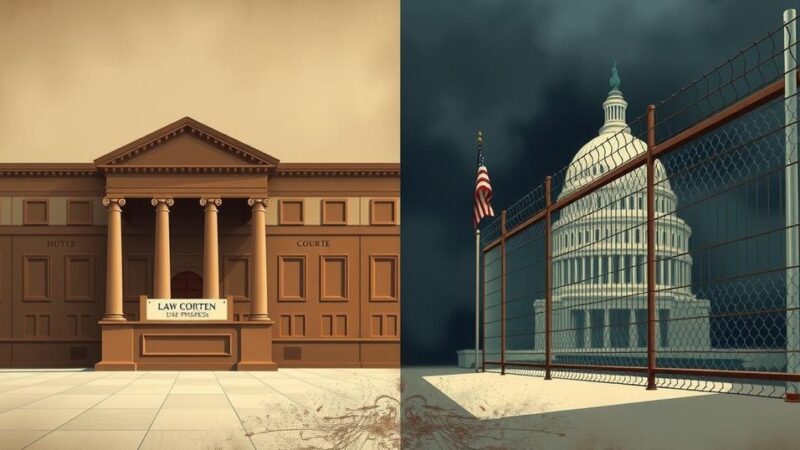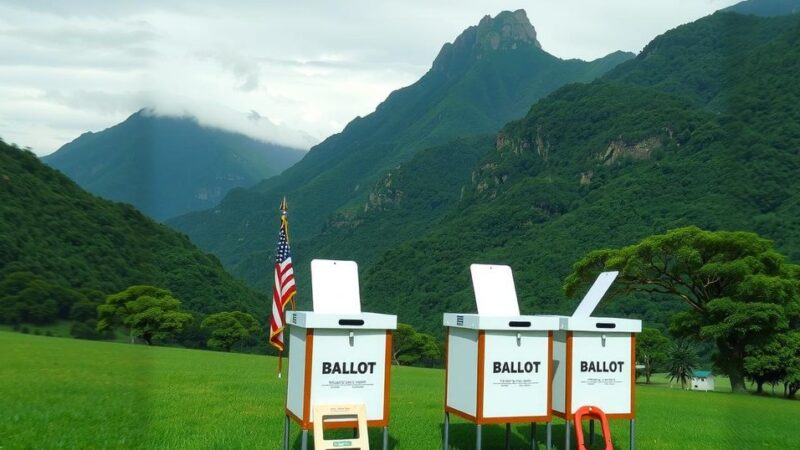Comoros held a parliamentary election on Sunday amid a boycott from opposition leaders who accused President Azali Assoumani of authoritarianism and compromised electoral integrity. While approximately 330,000 citizens were registered to vote, opposition parties anticipated low turnout due to public disillusionment with the democratic process. The election outcome will influence the country’s legislative makeup, with results expected next week.
Comoros conducted a parliamentary election on Sunday that faced a boycott from certain opposition leaders who criticized President Azali Assoumani for his increasingly authoritarian governance and raised concerns about the electoral process’s integrity. This election will ultimately determine the makeup of the 33-seat legislature, with results anticipated to be announced next week by the national electoral commission.
Approximately 330,000 voters are registered out of a total population of 850,000 in the island nation. However, opposition figures express expectations of low voter turnout, driven by a general dissatisfaction with the democratic process. In the previous parliamentary election held in 2020, Assoumani’s party secured 20 out of the 24 contested seats, with many viewing that election as a mere facade devoid of fairness.
Assoumani exercised his right to vote in Mitsoudjé, marking his participation in the ongoing electoral process. Previous claims from opposition parties branded the last election as a “masquerade” and alleged it lacked fairness. Furthermore, the president’s recent victory in last year’s election, also deemed fraudulent, incited significant public unrest.
Among the opposition parties, the Juwa Party, founded by former President Ahmed Abdallah Sambi, was a notable boycotter of this election, having previously similarly withdrawn from the 2020 parliamentary vote. The island nation of Comoros, which gained independence from France in 1975, is characterized by a troubled political history marked by military coups and a trend of authoritarian leadership since Assoumani’s initial rise to power in 1999.
Throughout his tenure, Assoumani, who has been president for three consecutive terms and circumvented prior rotational agreements for the presidency, has enacted constitutional amendments allowing him to extend his rule. Observations from the Africa Center for Strategic Studies indicate that Assoumani’s administration has increasingly relied on political repression and held non-competitive elections. Despite adverse weather conditions anticipated from Tropical Cyclone Dikeledi, electoral officials confirmed the voting would proceed as planned.
In summary, the recent parliamentary election in Comoros witnessed significant opposition boycott amidst accusations of authoritarianism directed at President Azali Assoumani. Concerns regarding the electoral process’s integrity paired with past allegations of election fraud contribute to a climate of distrust among the populace. The upcoming results, coupled with historical political instability, paint a complex picture for the nation’s democratic future.
Original Source: abcnews.go.com






